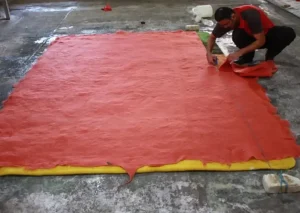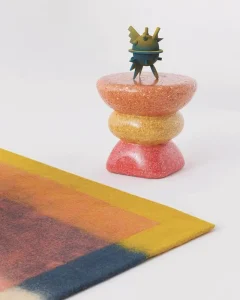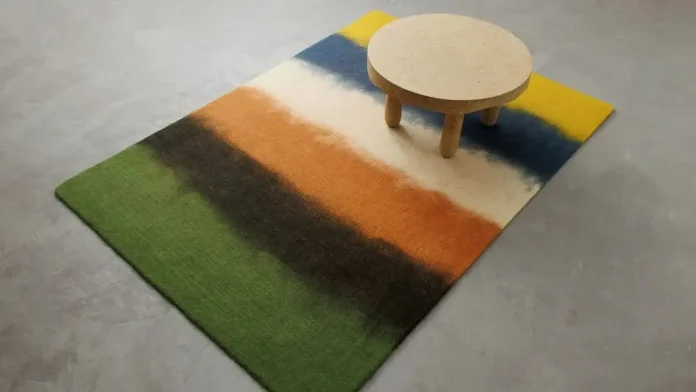Peace Industry, a rug manufacturer committed to preserving traditional craftsmanship, has revitalized an ancient Iranian felting technique, namad, to create the innovative Softblock rug. This reversible, colorful design features distinct patterns on each side, showcasing the possibilities of a craft that has existed for millennia.
The Softblock rug is crafted using raw lamb’s wool and dyed with natural vegetable pigments. This ancient process involves layering loose wool over a pattern, adding boiling water, and compressing the fibers through hand or foot kneading. The result is a dense, durable textile that requires minimal maintenance and is naturally stain- and fire-resistant.
Melina and Dodd Raissnia, founders of Peace Industry, discovered namad in 2002 while exploring traditional rug-making methods. Recognizing its potential and fragility as a dying art, they established a workshop near Esfahan, Iran, where local artisans—half of whom are hearing-impaired—create these rugs using traditional techniques.

“Namad is the world’s oldest rug-making technique, but its quality and popularity have been in decline for over a century,” said designer Dodd Raissnia. “We’ve reversed this trend by introducing a high-quality, sustainable product with both ancient and modern appeal.”
The reversible design of the Softblock rug adds versatility and longevity, allowing users to refresh their spaces by flipping the rug. The dense felt surface provides sound-dampening qualities, better dust resistance, and allergen prevention compared to woven rugs, enhancing its functionality.

Peace Industry’s commitment to sustainability extends beyond materials. Their workshop trains young artisans, ensuring the continuity of this endangered craft while providing sustainable livelihoods.
The Softblock rug’s thoughtful design and cultural significance have earned it a spot on the Dezeen Awards 2024 shortlist for textile design, reflecting its fusion of heritage and innovation.





